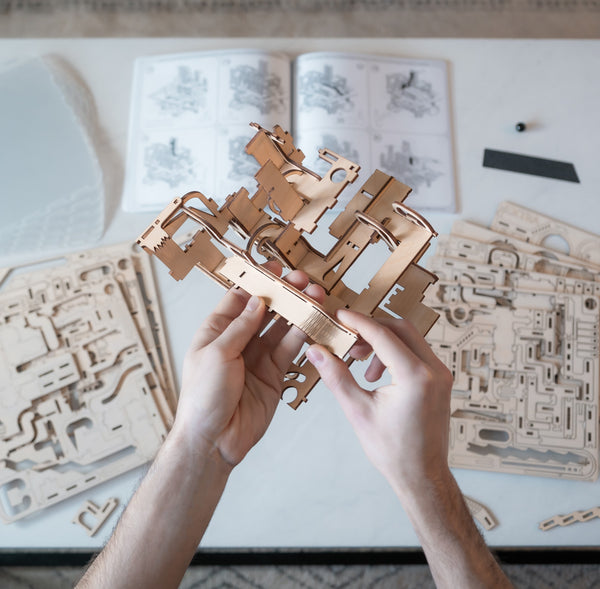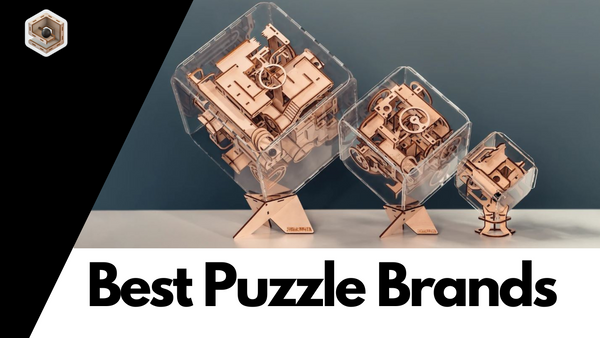
Unlock the Benefits of Puzzles
Puzzles have been a popular form of entertainment for hundreds of years, but recent studies have shown that they can offer more than just a temporary distraction from everyday life. There are many benefits of puzzling. Regardless of age, puzzles offer benefits to anyone who engages in them.
Benefits of Doing Puzzles
- Improved cognitive function: One of the most well-known benefits of puzzles is their ability to boost cognitive function. Puzzles, such as crosswords and jigsaw puzzles, can help improve memory, attention, and processing speed and reduce the risk of age-related cognitive decline in adults. This is because puzzles require you to constantly engage your brain and solve problems, leading to new neural connections being formed and strengthened over time.
- Enhanced problem-solving skills: Solving puzzles requires a high level of problem-solving skills, as you need to identify patterns, use logic, and think critically to find the solution. This mental stimulation can help improve your problem-solving abilities, which can benefit your personal and professional life.
- Increased creativity: Pushing your brain to think outside the box is a surefire way of sparking creativity. Doing puzzles stimulates mental activity and encourages you to develop unique solutions. This type of problem-solving enlarges your ability to think creatively, not only when solving puzzles but in other aspects of your life too!
- Reduced stress: Are you feeling overwhelmed by stress? Puzzle-solving is a great way to give your mind a break. Completing a puzzle can help boost your mood and lift your spirits while also relieving stressful thoughts and worries.
- Promoted mental wellness: Puzzle-solving can impact mental health and well-being positively. The mental stimulation and sense of accomplishment that comes from solving puzzles can help improve mood, reduce symptoms of depression and anxiety, and promote overall mental wellness.
- Improved hand-eye coordination: For physical puzzles, such as jigsaw puzzles or marble maze puzzles, solving them requires coordination between the hands and eyes. You strengthen your hand-eye coordination and fine motor skills as you put together the pieces or guide the marble through the maze.
- Better spatial awareness: Physical puzzles can also help improve spatial awareness and perception, as you need to understand the relationship between objects to find the solution. This can be particularly beneficial for children, as it can help with their cognitive development and overall learning abilities.
- Improved memory: Puzzles can also help improve memory, as you need to recall information to find the solution. For example, when solving crossword puzzles, you must remember the answers to previous clues to fill in the rest of the puzzle. Over time, this type of mental stimulation can help improve your overall memory function.
-
Improved dexterity: 3D puzzles present a challenging and stimulating experience beyond traditional jigsaw puzzles. Assembling a 3D puzzle requires higher levels of dexterity, fine motor skills, hand-eye coordination, and spatial awareness than regular jigsaw puzzles. It also requires more stability and control in assembling each layer, making it even more physically challenging.

The benefits of doing puzzles are vast and varied. From boosting cognitive function and problem-solving skills to promoting mental wellness and physical coordination, the rewards of puzzle-solving are endless. Whether you prefer crosswords, jigsaw puzzles, or 3D brain teasers, there is a puzzle out there for everyone, and it’s never too late to start. So why not pick up a puzzle today and see for yourself the many benefits that this form of entertainment has to offer





